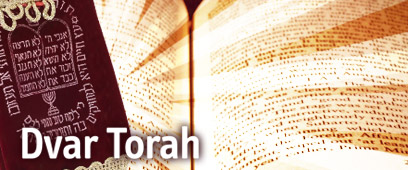

Rabbi Joel Finkelstein
Each year, the center of our High Holiday prayers is the statement “U’Teshuva, Tefilla U’Tzedaka Maavirin et Roah HaGezeirah” – Repentance, Prayer and Charity remove the evil decree.
To listen to the Dvar Torah click here
What is the relationship between Teshuva and Prayer? Can Teshuva be achieved without Prayer? Is Prayer a part of Teshuva? Can a person do Teshuva on their own, or do they need to pray to achieve it?
Rabbeinu Yonah in his “Gates of Teshuva” says that prayer is one of the 20 fundamentals of Teshuva. Rabbeinu Yonah alludes to three types of prayer which are part of the Teshuva process.
The first is a prayer that is like a sacrifice, as it says in Hosheah “K’Chu imachem Devarim V’Shuvu El Hashem” Take for yourselves words and return to Hashem “VNeshlama Parim Sfateinu” Our words should take the place of sacrifices. In this sense, prayer is part of Teshuva in that it atones for sin like a sacrifice, not that we pray to be forgiven, but rather that the prayer itself atones for sins.
This aspect of prayer can be found in the writings of the Rambam, who writes that Teshuva is accepted more during the ten days of repentance between Rosh Hashana and Yom Kippur. What does it mean that the Teshuva is accepted? Apparently, Teshuva is like a prayer, which can be accepted or rejected, just as a sacrifice can be accepted or rejected.
Sins' removal
The second type of prayer in Rabbeinu Yonah is that we pray that the sin should be removed. This is not simply to pray to be forgiven, but rather to pray to be accepted before Hashem.
One of the results of Teshuva according to the Rambam is that the sinner can call out to God and his payers will be heard immediately, that our deeds will be accepted before Hashem like the days of old. We need to pray for this renewed closeness to God.
Finally, Rabbeinu Yonah says that we need to pray that Hashem help us with our Teshuva. This is very interesting. Surely it is up to us to do Teshuva, so why do we need to pray for it? Apparently, Teshuva can’t always be achieved on our own, and we need to pray for it to happen.
Besides the effect of prayer on Teshuva, Rabbeinu Yonah also describes the effect Teshuva has on prayer. Prayer means to stand before Hashem. When a person does Teshuva, and stands before Hashem, he stands before Hashem as one whose good deeds illuminate him from within, and his Teshuva has caused him to appear better before Hashem.
Without prayer, there is no Teshuva, and without Teshuva, there is no prayer. May our prayers and Teshuva be accepted this year fully.
Rabbi Joel Finkelstein is the rabbi of Anshei Sphard - Beth El Emeth Congregation, Memphis, Tennessee.
Courtesy of the Orthodox Union Take Five for Torah program















